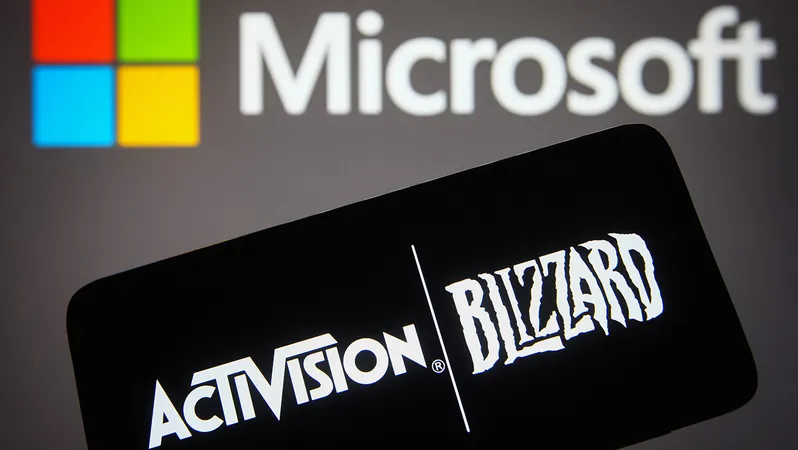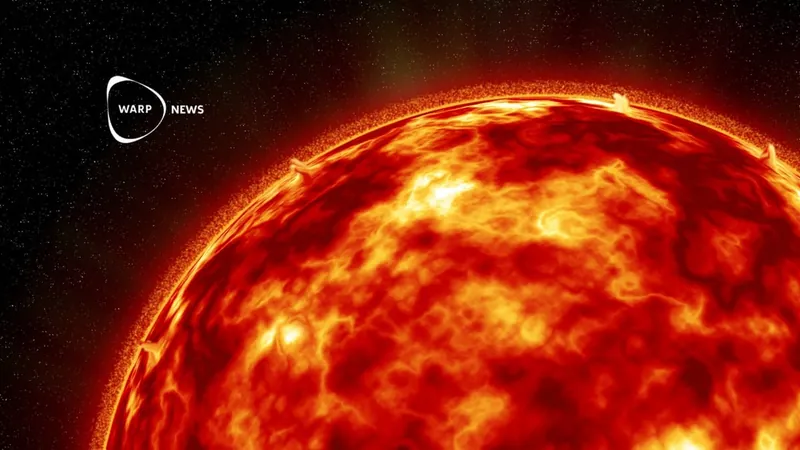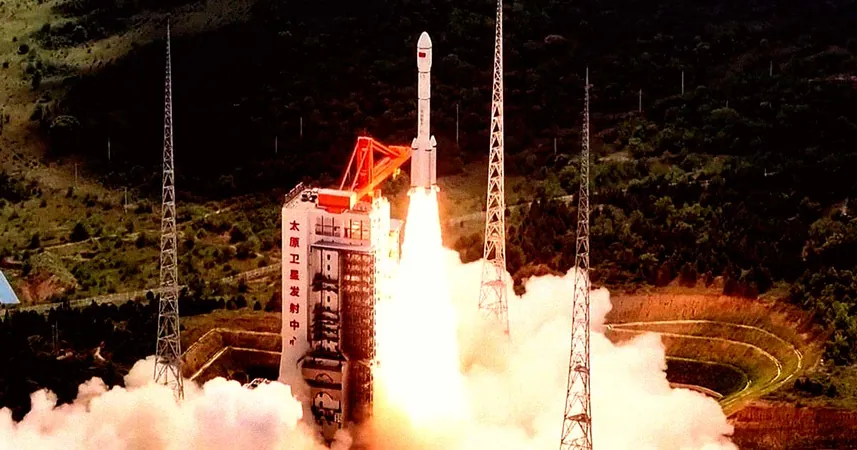
Microsoft Settles Gamer-Led Antitrust Lawsuit Following $69 Billion Activision Blizzard Acquisition
2024-10-14
Author: Ming
Introduction
In a significant development in the gaming industry, Microsoft has reached a settlement regarding an antitrust lawsuit filed by gamers who challenged the tech giant's monumental $69 billion acquisition of Activision Blizzard. The settlement was officially announced in court, with both parties agreeing to dismiss the lawsuit "with prejudice," preventing any future refiling on this matter.
Details of the Settlement
While the exact terms of the settlement remain confidential, a court filing confirmed that "each party shall bear their own costs and fees." The lawsuit originated in California federal court in 2022 and was initiated by gamers from various states who expressed concerns that the merger could lead to the emergence of one of the world’s largest video game companies, potentially giving Microsoft the power to hike prices, restrict game availability, and limit consumer choices.
Concerns Raised by Gamers
Among the fears articulated in the lawsuit was the possibility of Microsoft making select game titles exclusive to its Xbox platform, which would potentially alienate gamers who use other consoles. The suit was prompted by the Federal Trade Commission's (FTC) earlier attempt to block the acquisition, which foundered when U.S. District Judge Jacqueline Scott Corley rejected the FTC’s request for a preliminary injunction. Judge Corley ruled that Microsoft's ownership of Activision would not stifle competition in the increasingly popular digital subscription and cloud gaming markets, citing evidence of greater accessibility for consumers to popular titles. Furthermore, she noted that gamers could pursue legal action related to divestiture after the merger's completion.
Gamers' Response to the FTC Intervention
In the wake of the FTC's failed intervention, gamers urged the court to expedite a trial date following a ruling from the 9th U.S. Circuit Court of Appeals. They maintained that the merger was damaging their interests, citing rising game prices, cancellations of popular titles, and workforce reductions at Activision that they believed were detrimental to competition. Furthermore, the lawsuit emphasized that Microsoft's aggressive expansion of its Game Pass subscription service threatened to monopolize the gaming landscape.
Microsoft's Defense
Microsoft CEO Satya Nadella previously testified about the so-called "network effects," which postulate that the value of a platform increases as its user base grows. Gamers’ lawyers argue that such scaling significantly advantages larger companies like Microsoft, allowing them to attract more content from third-party developers and effectively pushing smaller competitors aside. Internal documents reportedly underscored this point, claiming that "the first to scale wins" in content subscriptions.
Statements from Legal Representatives
Joseph Saveri, a representative for the gamers, pointedly remarked in a court filing that, "As time passes, Microsoft continues to increase its market power," indicating that rising prices and reduced game availability were symptoms of a potential monopoly in the making. In response to the gamers’ assertions regarding Nadella's deposition, Microsoft argued that his claims about the company's position were mischaracterized and maintained that the rapid growth of Game Pass subscribers was an irrelevant point in the overall dispute.
Merger Finalization
Following prolonged regulatory scrutiny, Microsoft successfully finalized the merger last year, thereby integrating its Xbox console operations with Activision, the studio behind blockbuster titles such as Call of Duty, Warcraft, and Candy Crush.
Conclusion
As of now, the settlement marks a crucial milestone in the ongoing conversation about antitrust laws in the gaming industry, provoking questions about market competition, consumer rights, and the future landscape of video gaming. Stay tuned, because the stakes in the gaming world are higher than ever!




 Brasil (PT)
Brasil (PT)
 Canada (EN)
Canada (EN)
 Chile (ES)
Chile (ES)
 España (ES)
España (ES)
 France (FR)
France (FR)
 Hong Kong (EN)
Hong Kong (EN)
 Italia (IT)
Italia (IT)
 日本 (JA)
日本 (JA)
 Magyarország (HU)
Magyarország (HU)
 Norge (NO)
Norge (NO)
 Polska (PL)
Polska (PL)
 Schweiz (DE)
Schweiz (DE)
 Singapore (EN)
Singapore (EN)
 Sverige (SV)
Sverige (SV)
 Suomi (FI)
Suomi (FI)
 Türkiye (TR)
Türkiye (TR)